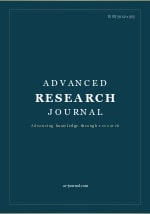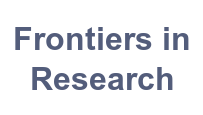Consumer awareness & switching barriers in telecom: How sim-swap friction and plan complexity lock African users into suboptimal plans
DOI:
https://doi.org/10.71350/30624533113Keywords:
Switching barriers, consumer lock-in, sim portability, plan complexity, Africa-west comparisonAbstract
Why are African mobile consumers stuck with pricey or substandard telecom services despite widespread dissatisfaction and cheaper alternatives? This pioneering study reveals Sub-Saharan Africa's secret consumer lock-in, where startlingly low switching rates—9% in Nigeria versus 25% in the UK—defy market logic. We demonstrate how engineered friction systematically stifles consumer agencies using behavioral surveys of 1,200 mobile users in West Africa and Western markets, mystery shopping audits at 40 retail locations, and Shannon entropy metrics on 120 prepaid tariffs. Our data shows a clear gap. West African consumers cited cumbersome ID verification as a switching obstacle at 68%, compared to 12% in Western markets. African prepaid plans were 2.4 times more complex than EU/UK ones, paralyzing choice. Most importantly, porting delays in Nigeria reached 72 hours compared to the UK's 2-hour PAC code scheme, making price competitiveness a myth for millions. This study shows that switching barriers are structural exclusion, not just annoyance. Biometric failures cause Lagos retailers to forsake 25% cost savings, or inexplicable rates drain 30% of low-income customers' communications budgets, creating digital inequality. The innovative Switching Friction Index (SFI) quantifies Nigeria's barrier intensity at 8.3/10 vs the UK's 2.1, and we propose a four-phase frictionless portable regulatory path. African regulators must redefine seamless switching as important digital infrastructure, requiring standardized plan disclosures and integrated digital ID systems, to remove these artificial barriers and open truly competitive, inclusive telecom markets.
Downloads
References
African Union. (2020). Digital Transformation Strategy for Africa (2020-2030). https://au.int/en/documents/20210118/digital-transformation-strategy-africa-2020-2030
Africa Practice. (2022). Ghana telecommunications sector regulatory assessment. https://africapractice.com/reports/ghana-telecom-audit
Bundesnetzagentur. (2022). Market transparency in telecommunications: Prepaid tariff calculator evaluation report. https://www.bundesnetzagentur.de/SharedDocs/Downloads/DE/Sachgebiete/Telekommunikation/Unternehmen_Institutionen/Transparenz/Vielfaltsbericht2022.pdf
BusinessDay. (2023). MTN Nigeria's pricing strategy memos reveal a complex design. https://businessday.ng/telecoms/article/mtn-nigerias-pricing-strategy-memos-reveal-complexity-design/
Gans, J. S., King, S. P., & Wright, J. (2001). Theorizing and testing wireless number portability (Melbourne Institute Working Paper No. 17/01). University of Melbourne. https://melbourneinstitute.unimelb.edu.au/__data/assets/pdf_file/0004/354088/wp2001n17.pdf
Grzybowski, L., & Pereira, P. (2007). The advantage of timing: Mobile number portability in Europe (NET Institute Working Paper No. 07-28). https://www.netinst.org/grzybowski_07-28.pdf
GSMA Intelligence. (2023). Mobile number portability: Global benchmarks Q3 2023. https://www.gsmaintelligence.com/research/2023/02/mobile-number-portability-global-benchmarks
Hidalgo, C. A. (2021). Why information grows: The evolution of order, from atoms to economies. Basic Books.
Hofstede, G. (2011). Dimensionalizing cultures: The Hofstede model in context. Online Readings in Psychology and Culture, 2(1). https://doi.org/10.9707/2307-0919.1014
Johnson, E. J., Bellman, S., & Lohse, G. L. (2002). Defaults, framing, and privacy: Why opting in-opting out. Marketing Letters, 13(1), 5–15. https://doi.org/10.1023/A:1015044207315
Kahneman, D. (2011). Thinking, fast and slow. Farrar, Straus and Giroux.
Laibson, D. (1997). Golden eggs and hyperbolic discounting. The Quarterly Journal of Economics, 112(2), 443–478. https://doi.org/10.1162/003355397555253
Klemperer, P. (1995). Competition when consumers have switching costs: An overview with applications to industrial organization, macroeconomics, and international trade. The Review of Economic Studies, 62(4), 515–539. https://doi.org/10.2307/2298075
Levy, B., & Spiller, P. T. (1994). The institutional foundations of regulatory commitment: A comparative analysis of telecommunications regulation. Journal of Law, Economics, & Organization, 10(2), 201–246. https://doi.org/10.1093/oxfordjournals.jleo.a036864
Nigerian Communications Commission (NCC). (2021). Revised national identity policy for SIM card registration and related activities. https://www.ncc.gov.ng/docman-main/legal-regulatory/reports/894-revised-national-identity-policy-for-sim-card-registration-sept-2021/file
Nigerian Communications Commission (NCC). (2023). 2023 subscriber/network data annual report. https://www.ncc.gov.ng/documents/1109-2023-subscriber-network-data-annual-report/file
North, D. C. (1990). Institutions, institutional change, and economic performance. Cambridge University Press.
Ofcom. (2019). Making switching easier: Implementing text-to-switch and one touch switch [Statement]. https://www.ofcom.org.uk/__data/assets/pdf_file/0026/138759/statement-making-switching-easier.pdf
Ofcom. (2023). One Touch Switching: Implementation review and market impact assessment. https://www.ofcom.org.uk/__data/assets/pdf_file/0028/264185/cmr-2023.pdf
Punch. (2022, March 15). NIN-SIM linkage: Subscribers lament hurdles, seek deadline extension. https://punchng.com/nin-sim-linkage-subscribers-lament-hurdles-seek-deadline-extension/
Safaricom. (2023). Blockchain-enabled mobile number portability pilot report. https://www.safaricom.co.ke/images/Downloads/Blockchain_MNP_Pilot_Report.pdf
Shannon, C. E. (1948). A mathematical theory of communication. The Bell System Technical Journal, 27(3), 379–423. https://doi.org/10.1002/j.1538-7305.1948.tb01338.x
Schwartz, B. (2004). The paradox of choice: Why more is less. Ecco.
Shy, O. (2002). The economics of network industries. Cambridge University Press.
Telecom Regulatory Authority of India. (2021). Study on consumer awareness of mobile number portability. https://www.trai.gov.in/sites/default/files/MNP_Report_21102021_0.pdf
Williamson, O. E. (1985). The economic institutions of capitalism: Firms, markets, relational contracting. Free Press.
Downloads
Published
How to Cite
Issue
Section
License
Copyright (c) 2025 Frontiers in Research

This work is licensed under a Creative Commons Attribution 4.0 International License.








